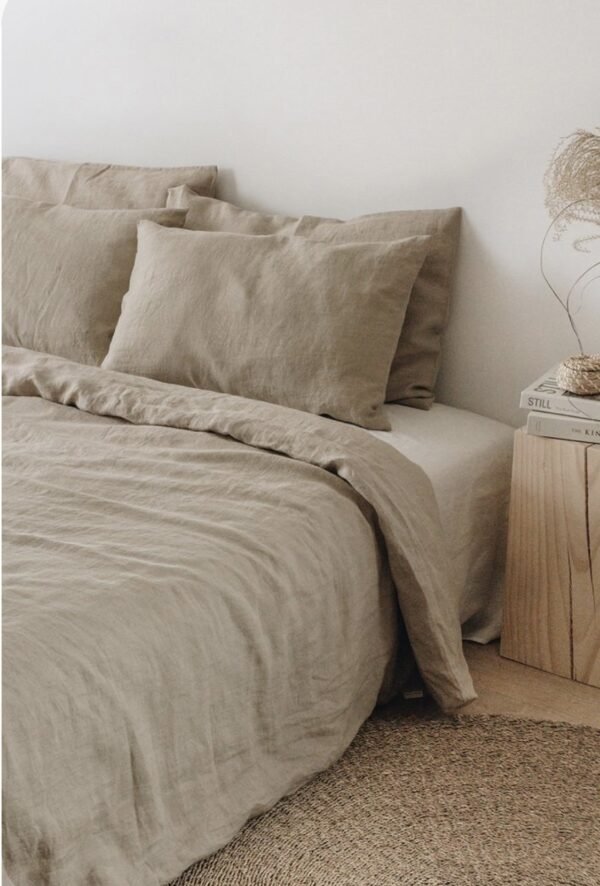
The Best Natural Bedding Type for You Based on Your Sleeping Needs

Given that many people tend to switch their winter duvet to their summer duvet around about now, you may consider treating yourself to a new bed linen set to match. However, have you ever considered picking an eco-friendly option?
To help, the bedding experts at Happy Beds have shared four natural bedding types and their separate sleep benefits – allowing you to pick which the best for you depending on your sleep needs.
1. Bamboo bedding is best for those with sensitive skin.

Bamboo bedding is, as the name suggests, made from bamboo fibres. This makes it sustainable, as bamboo grows quickly and is easy to replenish.
But what about the sleep benefits? Well, bamboo bedding offers plenty of those and is temperature regulating (notice a theme with natural bedding?); bamboo also offers a smooth texture that is exceptionally comfortable and unique compared to other fabrics. An extra benefit to this is that bamboo bedding is often a more economical option than silk bedding whilst still giving you a similar feeling.
Bamboo bedding is a must-have for sensitive skin as it is naturally hypoallergenic – with bamboo fibres being resistant to bacteria and allergens. They’re also great for anyone who wants to keep their bedroom smelling fresh,as bamboo fibres contain a unique antimicrobial agent called bamboo kun. This agent prevents bacteria and other odour-causing microorganisms from growing!
2. Wool bedding is best for those who are going through menopause.

There’s a misconception that wool is only for the winter months when someone wants to cosy up with a good book or TV show, however, this certainly isn’t the case.Wool bedding is ideal for anyone who is going through menopause and often overheats at night. That’s because wool bedding can easily absorb up to 30% of its weight in moisture without feeling damp as its fibres absorb water. A benefit to this is that it helps to keep you warm in a colder room and cool in a warmer room!

Scientists at the University of Sydney studied wool and sleep, concluding that wool improves sleep by absorbing the sweat we produce at night, keeping skin dry and comfortable. The study involved eight healthy volunteers who slept on wool, cotton and synthetic bedding at three different temperatures: hot, neutral and cold. It was revealed that wool produced a deeper and longer sleep, with the difference at high temperatures most extreme.
3. Silk bedding is ideal for those that suffer from night sweats.

Silk is a fibre naturally produced by silkworms and then turned into a fabric that can be used for clothing, curtains, bedding and more. This means that silk is sustainable and eco-friendly, as no chemicals are involved in producing silk. Silk takes a long time to be created, as it relies on whatever silkworms can make, which is why silk often comes with a price tag.
But what about its benefits when it comes to sleep? Like wool, silk bedding is also great at regulating temperature despite how thin it feels. It’s also pretty absorbent, but you’ll likely need to take care when washing it, as water can weaken the fibres. Another great benefit is that silk is very lightweight, and this, in turn, makes it very breathable. This means that it will help keep your temperature down as you sleep!
For those who like to keep their hair manageable, we’d recommend silk pillowcases. A silk pillowcase is naturally very smooth to the touch, meaning you will wake with hair that is more manageable in the mornings, especially if you don’t use a hair bonnet.
4. Linen is best for those on a budget as it’s long-lasting and antibacterial, too.

One of the oldest fabrics in the world – and you know it’s got to be good if it’s been around since the Ancient Egyptians – linen bedding offers plenty of fantastic sleep benefits. Besides being breathable and temperature regulating – a common feature of natural bedding, you’ll notice – linen tunic tops are exceptionally hygienic. Being both antiseptic and antibacterial, linen is often considered one of the cleanest fabrics and actively works to prevent bacteria from growing!

Choosing linen bedding can also work out in the long term, as it is 30% more durable than cotton! They also soften over time, so the longer you have them, the comfier they’ll end up.













































